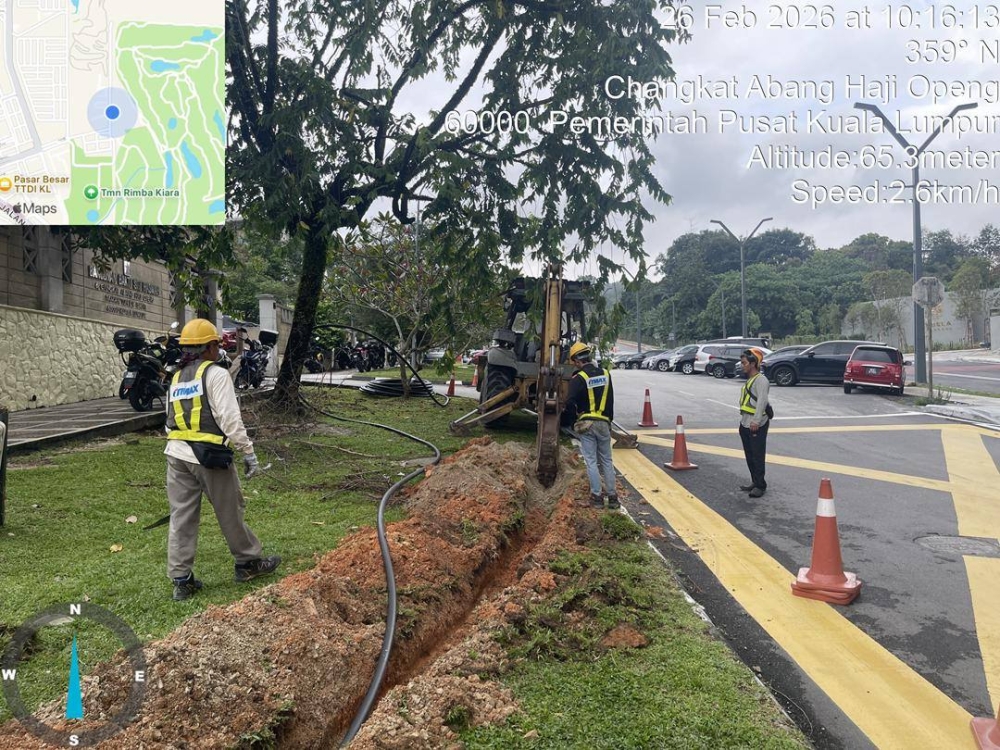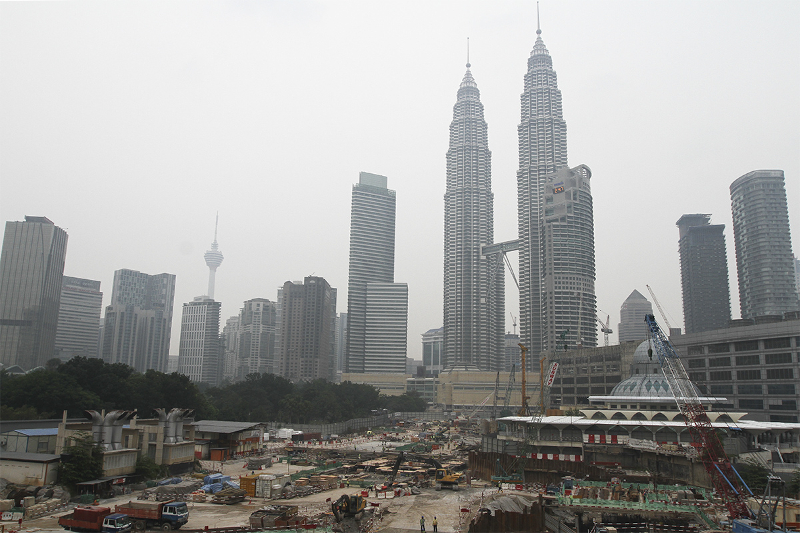KUALA LUMPUR, July 24 — The Organisation for Economic Co-operation and Development (OECD) 2019 Economic Survey of Malaysia has projected a resilient growth for the nation’s economy but cautioned that there are social and governance risks that must be addressed.
It predicts that private consumption will continue to be the main driver behind the nation’s growth due to stable employment conditions and Putrajaya’s measures to help low-income families.
However, it also warned that rising trade tensions, geopolitical uncertainties, and weaker growth in advanced economies are significant risks for highly open economies like Malaysia, while the general public is becoming more concerned over the continued rising costs of living.
“Although headline inflation has been benign in recent years, food prices have increased fast. This has increased the burden of families, especially the low-income groups that consume more on food items.
“While the government has introduced many initiatives and programmes to address the issues of the rising cost of living, such as direct cash transfers and price controls, progress could also be made by providing more targeted support, boosting entrepreneurship, improving productivity and employability among the low-income households,” said the survey.
Fiscal sustainability required
The OECD also advised Putrajaya to ensure fiscal sustainability seeing that its revenue collection is low due to its strong reliance on direct taxes and the volatile oil-related receipts coupled with the abolishment of the Goods and Services Tax (GST) last year.
The government’s expenditure is expected to rise substantially driven by pension, healthcare and education outlay in light of the government’s promotion of inclusive growth, in particular strengthening targeted support to low-income households.
Even though the government is correct in prioritising building up fiscal space and medium-term sustainability while highlighting risks associated with the large stock of government debt and contingent liabilities, it still requires to increase low-level tax revenue.
OECD recommends the removal of some of the “many” tax exemptions including blanket energy subsidies which should be replaced with targeted support to low-income groups.
Although the international body lauds the Pakatan Harapan (PH) administration’s efforts to strengthen anti-corruption measures through the National Anti-Corruption Plan 2019-2023, it also reminded them that the perception of corruption is still high in public procurement state-owned enterprises.
“Alignment of public procurement and governance of state-owned enterprises with international best practices is a basis for maximising expenditure efficiency and transparency, and reducing the perceived high level of corruption,” the survey found.
Human capital and education a rising concern
It also pointed out that Malaysia’s labour quality contribution to economic growth remains “much lower” when compared to the OECD average due to labour market imbalances.
This can be seen through the changes in sectoral composition of employment from 2010 to 2016 which was larger in Malaysia than most OECD countries, implying that the type of skills needed in the labour market might have changed considerably.
The future will only bring in more changes due to the automation and ageing population.
“Shortages are found across the skills spectrum, with several medium and high-skilled occupations experiencing labour shortages, but also many low-skilled occupations. At the same time, one-third of workers are employed in occupations that do not match their qualification level.
“These labour market imbalances hinder productivity and make it more difficult to climb up the value chain.
“Investment in education and training, but also recognition of prior learning, would help under qualified workers. Policies to stimulate the demand for high-level skills would help those who are over qualified,” the survey pointed out.
OECD also observed that Malaysian students have been lagging behind their regional counterparts, especially since compulsory education for Malaysian children is only up to standard six.
It advised making education compulsory at both ends of the spectrum, increasing it to the end of secondary schooling.
“The performance gap in international assessments between Malaysia’s education system and other countries has widened, reflecting the fact that a number of neighbouring countries have improved the quality of their education system more rapidly.
“As in some other countries, student performance is driven by the family’s socio-economic status. A significant portion of the gap between top performing and low-achieving students can be explained by parental education and family income.
“Regional disparities are still high, reflecting the difficulty to attract qualified teachers to disadvantaged schools. A better use of the teacher workforce could be achieved by reducing teacher administrative workload.
“Some skills imbalances can be further reduced by improving the responsiveness of the education system and by strengthening the connection between education institutions and businesses,” said the survey.
It also found that upskilling and reskilling opportunities to ensure labour relevancy among adult workers is limited in Malaysia — especially among the low-skilled adults, older adults, inactive women and workers in small and medium enterprises (SME).
The fact that existing training programmes or financial incentives for training is not aligned to the needs of the labour market is also an issue.
Family friendly labour policies needed to bring back women into workforce
Another aspect that the government can focus on to improve its labour market is by implementing more family-friendly policies, seeing that Malaysian women have high levels of education attainment but tend to taper out of the workforce in their 30s.
It observed that their labour market participation is low — perhaps due to child-birth and child-rearing activities and in order to get them back into the work force, barriers to women participation in the labour market must be reduced.
“To ensure that both fathers and mothers can earn an income, the reconciliation between work and family life could be made easier by legal implementation of longer maternity leave entitlements, which should be co-financed by the government, and the adoption of flexible work arrangements by employers.
“Helping both parents in paid work also requires investing more in affordable and good-quality early childhood care and education. This would not only be beneficial for parents, but also has positive effects on children’s cognitive and social development,” said the survey.
Finally, the survey reminded the PH administration that technological adoption is critical to boost productivity and the nation’s transition to a high income economy.
It cautioned Putrajaya that the economy’s reliance on low-skilled immigrants can lower the rate of adoption of new technologies and can compromise the country’s aspiration to become a technology-driven economy.


















